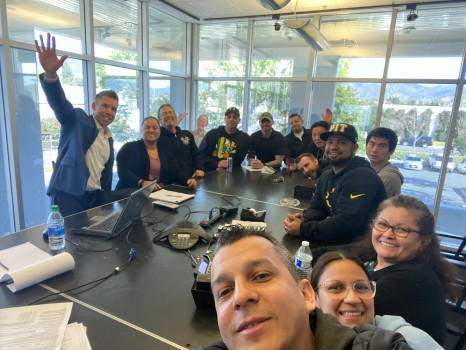
Retirement Partners of California 401k Advisors Erick Arndt Wealth Advisor PPC AIF
Reviews Summary
About This Listing
Who Can Work with a CPA?
*Note: CPAs may specialize in different areas. Be sure to check credentials and service offerings.*
First-Time Clients
If this is your first time working with a CPA, don’t worry — most professionals offer a free consultation and will walk you through what to expect. You may be asked to complete an intake form, share financial documents, or set clear goals for your session.
What to Know Upfront:
*Note: Every CPA operates a bit differently. Don’t hesitate to ask questions before committing.*
What to Bring
*Tip: Organize your documents in advance to save time and ensure accuracy.*
Preparing for Your Appointment
*Note: Preparation helps you make the most of your CPA’s expertise.*
How to Get Started
Other Helpful Info
*Note: Every CPA is different — take time to find one who fits your goals and style.*
Features
Contact Information
Address
25802 Bronte Ln
Stevenson Ranch, California 91381
Phone
+1 661-249-6559Hours
Customer Reviews
Erick Arndt has quickly become my specialist for all things 401(k). I run an office for a small business and when you are setting up anything new, but especially something involving money, it is stressful. Erick truly helped me through the process and helped me through my anxious moments. He is very knowledgeable and quick to answer any questions that I have. On top of that, he has helped me with things outside of our 401(k), being exactly the kind of financial advisor I need. I have made it clear to everyo
Erick has been an unbiased and active partner with our 401k plan. Recently, he conducted an all-employee introduction/enrollment meeting for our company where he was very thorough with presenting the plan and answering all questions - we received great feedback from our employees! He's very focused on our employees' financial success and providing the best service, options and ease for the company. Thanks Erick!!
Erick Arndt has been instrumental in helping us maintain our 401k program, especially during these tumultuous times. He's extremely knowledgeable and has made investing easier to understand for our team. I would absolutely recommend Erick to anyone looking for an investment advisor.
Erick helped us establish a 401K program for one of our companies over 10 years ago. He made it so easy, working with all of us throughout the onboarding process and developing plans for our successful futures. He has always been there for us when needed, so it was a no brainer that we chose him again when adding a 401K plan to another one of our companies.
Erick's enthusiasm towards educating and assisting his clients to retirement success is contagious and incredible! He's thorough, engaging, and speaks in a language we all can understand and appreciate. You can tell he truly cares about this and doesn't just go through the motions. We are so grateful for his knowledge and care for our employees and team!
Erick has been amazing. Very responsive and helpful. We have used him for a couple of years and I am very glad our company switched over to his services. This has been a big win for our company and me as the administrator.
Erick simplified the 401K process and made my life easier. I so appreciated that he answered every question quickly and with clarity. Take the time and call him.